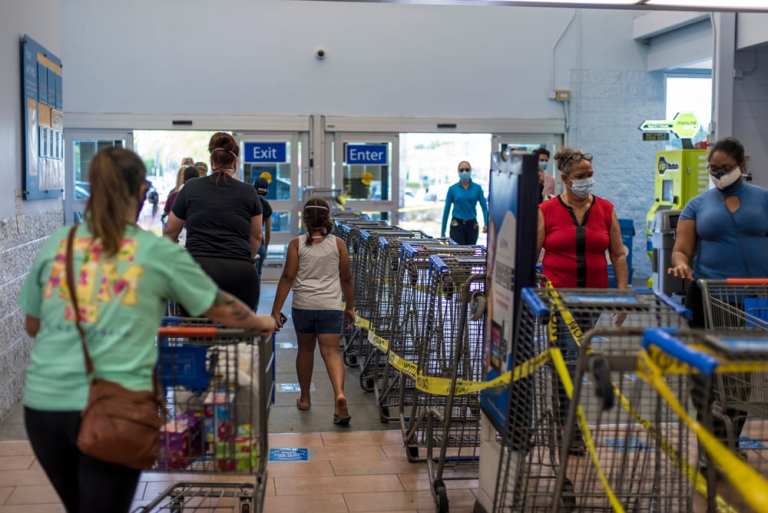Big-Box Retail CEOs Say Stimulus Checks Boosted Sales

If you want to know whether stimulus checks are working to rebuild the economy, just ask the world’s largest retailer. Walmart U.S. CEO John Furner, who oversees more than 4,700 stores, says the answer is yes.
“I think it helped,” Furner told The First Trade, Yahoo! Finance’s morning market preview show. “Categories like sporting goods and bicycles, fabrics and crafts, toys, the stay-at-home categories, networking [equipment], really took off … definitely we do see a positive impact from the checks.”
The Coronavirus Aid, Relief and Economic Security (CARES) Act provided income-eligible taxpayers with a $1,200 check, or $2,400 for couples. Families with dependent children received an extra $500. The first direct-deposited checks arrived in mid-April.
On this week’s earnings call with investors and analysts, Walmart executives said same-store sales improved 9.5 percent. They attributed the boost, in part, to the early stimulus check recipients.
CNBC reported that Walmart was not alone in reaping the stimulus benefits. Brian Cornell, Target’s CEO, saw a noticeable increase in clothing and cosmetics spending thanks to the extra money in shoppers’ pockets.
Apple CEO Tim Cook told analysts the tech company saw an across-the-board uptick in the second half of April, at least in part due to the stimulus money.
Corie Barry, Best Buy’s CEO, said on a first-quarter earnings call that the company saw sales swell at the end of April. “Like many other retailers, we saw sales benefit during the last three weeks of the quarter, as customers undoubtedly chose to spend some of their government stimulus money on the products and services we provide,” he told investors.
Lowe’s CEO Marvin Ellison said the do-it-yourself retailer saw indications that checks boosted sales of home improvement items.
Still, the companies were reluctant to predict future sales because of the uncertainty caused by COVID-19.
It’s not clear whether Macy’s, Kohl’s and L Brands, the parent company of Victoria’s Secret and Bath & Body Works, saw a bump in sales because of the cash payments. CNBC reported that the companies did not mention stimulus-related spending when discussing first-quarter earnings.
A survey by the National Bureau of Economic Research, a nonprofit group, found that after a week or two, consumers had spent more than 40 percent of the money from the checks.
“A couple weeks after receipt of the checks, most of that excess spending relative to people who didn’t get the checks seemed to disappear,” Scott Baker, co-author of the report and an associate professor of finance at Northwestern University, told the network.